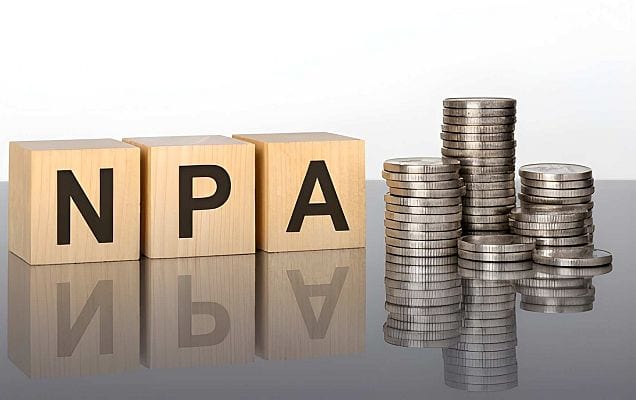With a view towards unlocking flow of capital to the financial sector, the Union Minister for Finance and Corporate Affairs unveiled several reforms across the banking sector, financial markets and infrastructure financing.
While presenting the Union Budget 2020-21 in Parliament today, the Union Minister for Finance and Corporate Affairs, Smt. Nirmala Sitharaman said, “A clean, reliable and robust financial sector is critical to the economy. In our efforts to achieve the USD 5 trillion economy, the financial architecture should keep evolving and move from strength to strength.”
In order to unlock private capital, Smt. Sitharaman proposed the sale of the balance holding of Government of India in IDBI Bank to private, retail and institutional investors through stock exchange. On the back of bank consolidation and capital infusion of Rs. 3,50,000 crore into Public Sector Banks (PSBs), the Finance Minister asserted that governance reforms would be carried out to make them more competitive, transparent and professional and thereby ensure a robust banking system. A few PSBs would also be encouraged to approach capital market to raise additional capital.
Further, the Minister announced that Deposit Insurance and Credit Guarantee Corporation (DICGC) has been permitted to increase Deposit Insurance coverage to Rs. 5 lakh per depositor from Rs. 1 lakh previously. She emphasized that a robust mechanism is in place to monitor the health of all Scheduled and Commercial Banks, and thereby ensure safety of depositor money.
Cooperative banks and NBFCs are also important constituents of the financial sector to be strengthened through improved governance. With respect to the Cooperative Banks, amendments to the Banking Regulation Act have been proposed to increase professionalism, facilitate access to capital and improve oversight through RBI. Further, limit for NBFCs to be eligible for Debt Recovery Mechanism via SARFAESI Act, 2002, is proposed to be reduced from existing asset size limits of Rs. 500 crore to Rs. 100 crores or loan size from existing Rs. 1 crore to Rs. 50 lakh.
Stressing on the need to strengthen the regulatory role of PFRDAI, the Finance Minister proposed necessary amendments in PFRDAI Act that will also facilitate separation of NPS trust for Government employees from PFRDAI. This would also enable establishment of a Pension Trust by the employees other than Government. Further, the Government proposes to infuse auto-enrolment into Universal Pension Coverage, apart from mechanisms for inter-operability and safe-guarding of accumulated corpus. “I am confident that this will motivate citizens to plan for their old age”, she added.
Micro, Small and Medium Sector Enterprises (MSMEs)
The Finance Minister noted that MSMEs are vital to the economy as they are the innovators, job creators and risk-takers. Several initiatives have been announced to enhance economic and financial sustainability of MSMEs.
- To enable NBFCs to extend invoice financing to MSMEs through TReDS, amendments have been proposed to Factor Regulation Act, 2011. Further, the Minister announced the launch of an app-based invoice financing loans product to obviate the problem of delayed payments and consequential cash-flow mismatch.
- A new scheme to provide subordinate debt to MSME entrepreneurs has been proposed to mitigate the issues of working capital credit. This subordinate debt, to be provided by banks, would count as quasi-equity, and be fully guaranteed through Credit Guarantee Trust for Medium and Small Entrepreneurs (CGTMSE), whose corpus shall be accordingly augmented by the Government.
- The Government has asked RBI to consider extension of debt restructuring window for MSMEs till March 31, 2021. More than five lakh MSMEs have benefitted from restructuring of debt permitted by RBI in the last year and the same is due to end on March 31, 2020.
- In order to offer handholding support for mid-size companies in export markets, the Government has proposed a scheme of Rs. 1000 crore, to be anchored by EXIM Bank and SIDBI, each of which shall contribute Rs. 50 crore each. This Rs. 100 crore would be achieved towards equity and technical assistance, while the remaining Rs 900 crore would be via debt funding from banks. The scheme shall focus on selected sectors like pharmaceuticals, auto components and others, and would extend support for technology upgradations, R&D, business strategy etc.
Disinvestment
In order to provide greater access to financial markets, unlock true value and induce market discipline, the Government has proposed sale of a part of its holding in LIC by way of Initial Public Offer (IPO). This shall also be an opportunity for retail investors to participate in the wealth so created.
Infrastructure Financing
The Finance Minister highlighted the Government’s commitment to infrastructure investment with its announcement of Rs 103 lakh crore National Infrastructure Pipeline projects. She informed the House that Rs 22,000 crore has already been provided for the same. This shall serve as equity support to Infrastructure Finance Companies such as IIFCL and a subsidiary of NIIF, who shall then leverage it, as permissible, to create a financing pipeline of more than Rs. 1,00,000 crore.
Underscoring the potential of IFSC, GIFT city to become a centre for international finance and high-end data processing, Smt Sitharaman proposed the setting up of an International Bullion Exchange at GIFT-IFSC as an additional option for trade by global market participants. It is further expected to enable better gold price discovery, create jobs and enhance India’s position worldwide. The Minister outlined that GIFT-IFSC already has an approved Free Trade Zone for housing vaults, 19 insurance entitites, 40 banking entities, along with precious metals testing laboratories and refining facilities being set up.
Financial Markets
To achieve the aspirational growth rate, the Finance Minister underscored the need to boost the flow of capital in the financial system, through the following measures, taken in consultation with RBI:
- FPI limits in corporate bonds are proposed to be increased to 15 per cent of outstanding stocks from the current 9 per cent
· Specified categories of Government securities would be opened fully for non-resident investors, along with domestic investors as well
· New Debt-based Exchange Traded Fund (ETF) consisting primarily of Government Securities to be floated. This is on the back of the massive success of the previous version. Further, it is expected to give retail investors access to Government securities, attractive investment option to Pension Funds and long-term investors
· A new legislation is proposed for laying down mechanisms for netting of financial contracts; this is to improve investor confidence and further expand the scope of Credit Default Swaps.
- A new mechanism would be devised to further support the Partial Credit Guarantee Scheme floated by the Government, post the Union Budget 2019-20, to address the liquidity crisis of NBFCs. The Government will offer support by guaranteeing securities so floated.













